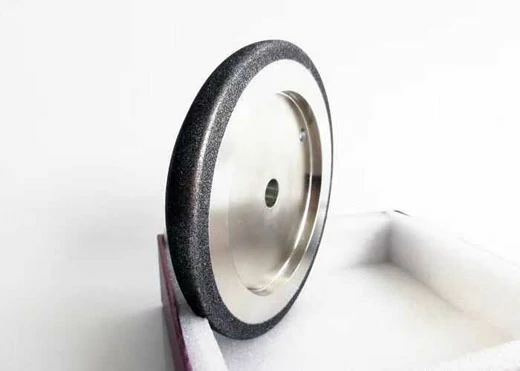The internal surface roughness of CBN wheel in bearing grinding is a critical factor that directly impacts the performance and quality of the finished bearing. Cubic boron nitride (CBN) wheels are widely used in bearing grinding due to their exceptional hardness and thermal conductivity, making them suitable for high-speed grinding operations. However, the internal surface roughness of CBN wheels can significantly influence the precision and smoothness of the ground bearing surfaces. This article aims to explore the importance of internal surface roughness of CBN wheels in bearing grinding and its impact on the final product.
The Significance of Internal Surface Roughness
The internal surface roughness of CBN wheels plays a crucial role in determining the quality and performance of the ground bearing surfaces. It directly affects parameters such as waviness, roughness, and peak count, which are essential indicators of surface quality in bearing manufacturing. High internal surface roughness can lead to irregularities and imperfections on the bearing surfaces, compromising the overall performance and longevity of the bearings. Therefore, achieving the desired internal surface roughness of CBN wheels is paramount in bearing grinding processes.
Factors Influencing Internal Surface Roughness
Several factors contribute to the internal surface roughness of CBN wheels in bearing grinding, including wheel composition, bonding materials, grit size, and dressing techniques. The composition of CBN wheels, particularly the concentration and type of abrasive particles, can significantly impact internal roughness. Additionally, the bonding materials used in the wheel affect its porosity, which in turn influences surface roughness. Grit size, another critical factor, determines the depth of cut and the resulting surface finish. Furthermore, dressing techniques play a vital role in maintaining the sharpness of the abrasive grains and controlling the topography of the wheel surface. Understanding and optimizing these factors are essential for achieving the desired internal surface roughness in CBN wheels for bearing grinding.
Impact on Bearing Performance
The internal surface roughness of CBN wheels directly influences the performance and service life of bearings. Bearings with smoother and more uniform surfaces exhibit reduced friction, wear, and noise, contributing to enhanced operational efficiency and durability. On the other hand, excessive internal surface roughness can lead to increased friction, heat generation, and premature wear, ultimately affecting the reliability and performance of the bearings. Therefore, maintaining optimal internal surface roughness in CBN wheels is critical for ensuring the quality and longevity of bearings in various industrial applications.
.webp)
